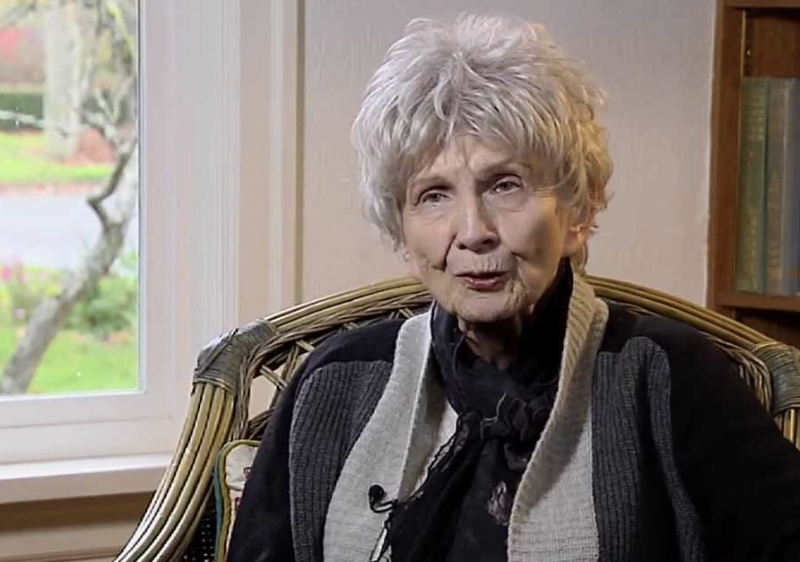


Alice Munro, the Nobel prize winning author, master of the short story, and person who wrote the best description of the human penis in all of literary history, has passed away at the age of 92. While the rest of the country spent decades arguing about what makes a piece of art Canadian or not, she released story after story that captured essential truths about what it means to be Canadian. And what it means to be a woman. And a parent. And a spouse. And a person with a frail body that will one day fail. As hers has now done.
Even if you’ve never read Munro and are possibly just realizing that she and Margaret Atwood are not the same person, we imagine you’re a bit sad to hear the news that an accomplished, insightful and by all accounts lovely person has passed away. So we thought we’d help you out by recommending 5 Munro short stories that will make you even more sad than you currently are.
5. The Bear That Came Over The Mountain
Munro’s most famous story thanks to its adaptation by fellow Canadian and sadness giver Sarah Polley into the film Away From Her. On the surface it’s about Fiona, a woman with severe Alzheimers, falling in love with a man at her assisted living facility as her husband Grant watches on, not sure whether he should try to step in. In reality it’s about Grant attempting to deal with the guilt over his own infidelities, and asking himself whether it’s possible to attain atonement when the person he wronged is no longer fully present. That’s right, Munro wrote a story where Alzheimers is only the second saddest thing the reader will have to deal with!
4. Miles City, Montana
People drown a lot in Munro’s stories. Children especially. And while technically no one drowns in this story (except for in the memory which opens the narrative) the ever present fear that the most precious thing in the world can be ripped away from you at any moment lurks over everything. The children may have survived this particular brush with death, but that doesn’t mean they will make it past the next one. So good luck sleeping tonight parents!
3. Cortes Island
Munro’s “little bride” is a young woman, full of artistic dreams, with a husband who “does what men do” (go to work, come home, eat dinner, go to bed) and two upstairs neighbours with a confusing, possibly dangerous past they have buried under years of living how a wife and husband are supposed to. She eventually moves to grander and grander accommodations, leaving her neighbours and her dreams behind. But don’t worry, this will only make you sad if you’ve ever given up on your passions in pursuit of a life of economic stability, and how many people could that possibly apply to?
2. Silence
A new nightmare for parents to absorb. In this one a woman comes to pick up her daughter from a silent retreat only to be told the daughter doesn’t want to see her or speak to her anymore. She is not only forced to confront the possibility of life without her kid, but the fact that she will never be told what she did that has caused this treatment. Somehow this is worse than worrying about your kids’ death.
1. Changes and Ceremonies
Part of a short story collection that follows a young woman’s path to adulthood, this chapter shows the protagonist, Del, and her class prepare for the school’s annual operetta. Munro writes:
Just as during the war you could not imagine what people thought about, worried about, what the news was about, before there was a war, so now it was impossible to remember what school had been like before the excitement, the disruption and tension, of the operetta.
You might be wondering: what’s so sad about that? To which we say the sadness is that the only person who could write like that is gone.


